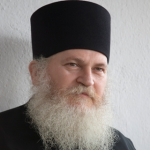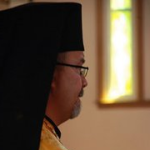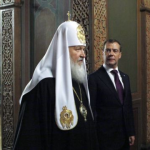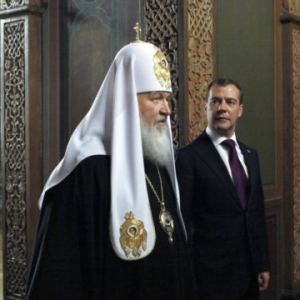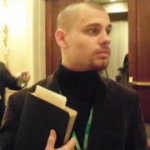
Deprecated: trim(): Passing null to parameter #1 ($string) of type string is deprecated in /home/aoiusa/public_html/wp-content/plugins/sexybookmarks/public.php on line 388
Deprecated: trim(): Passing null to parameter #1 ($string) of type string is deprecated in /home/aoiusa/public_html/wp-content/plugins/sexybookmarks/public.php on line 394
Deprecated: trim(): Passing null to parameter #1 ($string) of type string is deprecated in /home/aoiusa/public_html/wp-content/plugins/sexybookmarks/public.php on line 400
I am always encouraged whenever I read or hear young people who are serious about Christ. Below is a sermon written by Benjamin Peck, a freshman at Holy Cross College that he gave at the Festival of Young Preachers conference sponsored by the Academy of Preachers in January, 2012. (Learn more about the festival here.)
Ben is 21 years old but you can see by his sermon he thinks deeply and seriously about the needful things. He is aware that following Christ carries a cost and requires soberness and courage. He knows that the Christian life requires interior transformation, a putting away of sin, and boldness and resolve in the face of opposition and even danger. This kind of clarity doesn’t come without concrete encounter with the Risen Christ.
As I said, this is very encouraging. Good work Ben.

By Benjamin Peck
Oh Heavenly King, the comforter, the spirit of Truth, who art everywhere and fillest all things. Treasury of blessings, and giver of life; come and abide in us, cleanse us of every impurity and save our souls, oh Good One. Glory to God in the Highest, and on Earth, peace, goodwill towards men. Oh Lord, open Thou my lips that my mouth may show forth Thy praise.
In the name of the Father, and of the Son, and of the Holy Spirit, amen. Glory to Jesus Christ.
My brothers, my sisters… my fellow sinners. It is important to note just that; we are all sinners. Sinners among brothers and as such we are called to do but one thing to one another; forgive. The Lord God said “If you do not forgive men their sins, your Father will not forgive your sins,” in Matthew 6:15. To forgive is an act of love, a loving act of forgiveness is an act of meekness, and as we know from the Sermon on the Mount to be meek is to inherit the Earth. But what do we really know about being meek? To be meek is to not respond harshly, in anger, agitation, irritant or even in sarcasm to those around us. It is to be utterly calm, peaceful; loving to one another. I tell you now when I was in High School I made the conscious effort that I was going to go an entire day of being meek, I wanted to try it and see if I could achieve such love. Do you know happened? Not even three hours into that day, and I failed out of habit. Habit struck me down and caused me to respond harshly and sarcastically to someone I barely even knew. Isn’t that sad? So sad is it our society has so much habit on not loving. I couldn’t even make it three hours being loving and calm, let alone an entire day.
Love and forgiveness are two of the hardest things we will ever accomplish and be called to do as men and women of God. I find this humorous because when our friends struggle offenses made against them, we say to them “is it really so hard to forgive and forget?” And that’s a really stupid question, we know darn well how hard it is to move on and forgive, because it is so much easier and justifiable to our society to stew in our hatred, boil our rage and let our grudges bubble and brew. The other amusing thing is when we say to one another “loving is easy! It’s not so hard to love,” which is also not true. Love is patient, love is sometimes kind, but it sure as heck isn’t easy! It’s easy to love those who love you back; your mother, father, brother, sister, dog, cat, goldfish, turtle they all return the love you give them. But Christ said in Matthew 5:43-47 ~ “You have heard that it was said, ‘Love your neighbor and hate your enemy. But I tell you, love your enemies and pray for those who persecute you, that you may be children of your Father in heaven. He causes his sun to rise on the evil and the good, and sends rain on the righteous and the unrighteous. If you love those who love you, what reward will you get? Are not even the tax collectors doing that? And if you greet only your own people, what are you doing more than others? Do not even pagans do that?” How often do we follow this command? How often do we truly love our enemies, do we even think about it?
Let me give you some examples, brethren; the terrorists from 9/11, we’re supposed to love and pray for them. If a man murders his wife, his children, his friend, your friend or my friend; we have to love, forgive and pray for him. That awkward relative nobody wants to admit they have, we have to love and pray for them. Do not mistake me, brothers and sisters we are not called to love them for what they’ve done, we are called to love them because, like us, they are children of God. You may or may not be fathers or mothers, and I certainly am not, but I know that when I am a father, despite what sins my child may commit, despite what atrocities they may do, even if I am the victim of their crimes I will still love them. They are my children; a father can’t not love his child, and just as I cannot unlove my children, God does not stop loving his children. Christ said “Forgive them, Father; they know not what they do.” And these fellow children who have fallen from God’s grace know not what they do.
God’s grace is given unto us freely, but our forgiveness, our penance is conditional. We are not saved the moment we believe, we do not get a meal ticket to Heaven. A few months ago I met a man who said “I am righteous, I have been baptised since I was nine and now I cannot sin.” I asked him if he meant that if he sins he’ll go to Hell, he responded “no I literally cannot sin. Nothing I do is sinful. I am saved, I am righteous.” I couldn’t help but laugh at such ignorance, such arrogance, such harmful pride. Righteousness is something we all strive, thirst and starve for, but it is not so easily attained. Believe me! I wish that when I was baptized at the age of three nothing I did since then was a sin. Lying to my parents about cleaning my room, fighting both physically and verbally with my brothers, and if you have siblings you know what I mean. Or, as an adolescent teenager, looking at someone in a way I knew I shouldn’t have been looking. It’d be nice if none of those, or anything else I’d done, wasn’t a sin; that’d just be swell. But the problem is it doesn’t work like that, I still sin when I don’t love.
Loving is difficult, it takes practice and perseverance to love everyone around us, especially our enemies. It is even harder nowadays, considering that the world hates us. The world wants us to go away, wants to ignore us, it wants to pretend we never existed in the first place, in fact it makes consistent efforts to ignore us and cover us up. On December 22nd a Ugandan Bishop had acid thrown on his face and poured down his back, just for preaching love and forgiveness. There was no news coverage, save a small news website. CNN didn’t touch it, Fox didn’t touch it, they ignored it, they tried to ignore us. December 25th, there were three bombings in Nigeria, on Catholic churches during their Christmas mass, for honor kills. No news coverage, no story. No care.
And yet we must find a way to forgive them for these atrocities, and so if nothing else baptism raises the bar for us and calls us to be that much stronger, do that much more in our daily lives and make our lives that much harder because we know the reward that awaits us in Heaven. I do not condone the actions of those terrorists but let me assure you every man, woman and child who died is sitting on a throne in Heaven at the foot of God because they died in prayer, and they died in faith. This is important to note, my friends, that when we get into the enemy’s head with our talk of love and compassion, when they know we’re right and the only response they can think of is to kill us off, we’ve won. This is our victory! The world doesn’t like being confronted, it doesn’t like it when we win. They don’t like it when we won’t go away.
St. Maximus the Confessor, when arguing with fellow Christians, would not stop preaching the Gospel, preaching the Orthodox Church, and beating them in theological discussions, they cut out his tongue and cut off his right hand. This way he could not longer write or speak the word of the Gospel. Thats good preaching! St. John the Baptist, they had enough! They were tired of hearing about the Messiah, about the Christ, about God so they cut off his head. Good preaching! My patron saint, St. Benjamin the Deacon, in 424 A.D. was martyred. They initially captured and tortured him for preaching the Gospel. They later released him saying “Don’t do that anymore!” So what did he do? He preached louder, he preached harder, he preached more until they captured him again, stuck barbed wire under his toenails and finger nails, and left him to bleed to death. I have a lot to live up to, and I certainly hope that is never my fate, but you know what? That is great preaching!
It gives me no pleasure to say this, brothers and sisters, but the day is coming, possibly even in our lifetimes, where Christianity is openly persecuted in America. Let me assure you, this is a victory, for the Lord our God says “Blessed are you when men shall revile and persecute you for my sake. Rejoice and be exceedingly glad; for great is your reward in Heaven!” And blessed will we be. On that day it will be our duty as Christians, as soldiers of God’s mercy, to stand with stalwart hearts and unflinching convictions even as the faithless come to hunt and attempt to remove us, but we must stand our ground.
So when the heretics come to make that list, brethren; speak my name.
